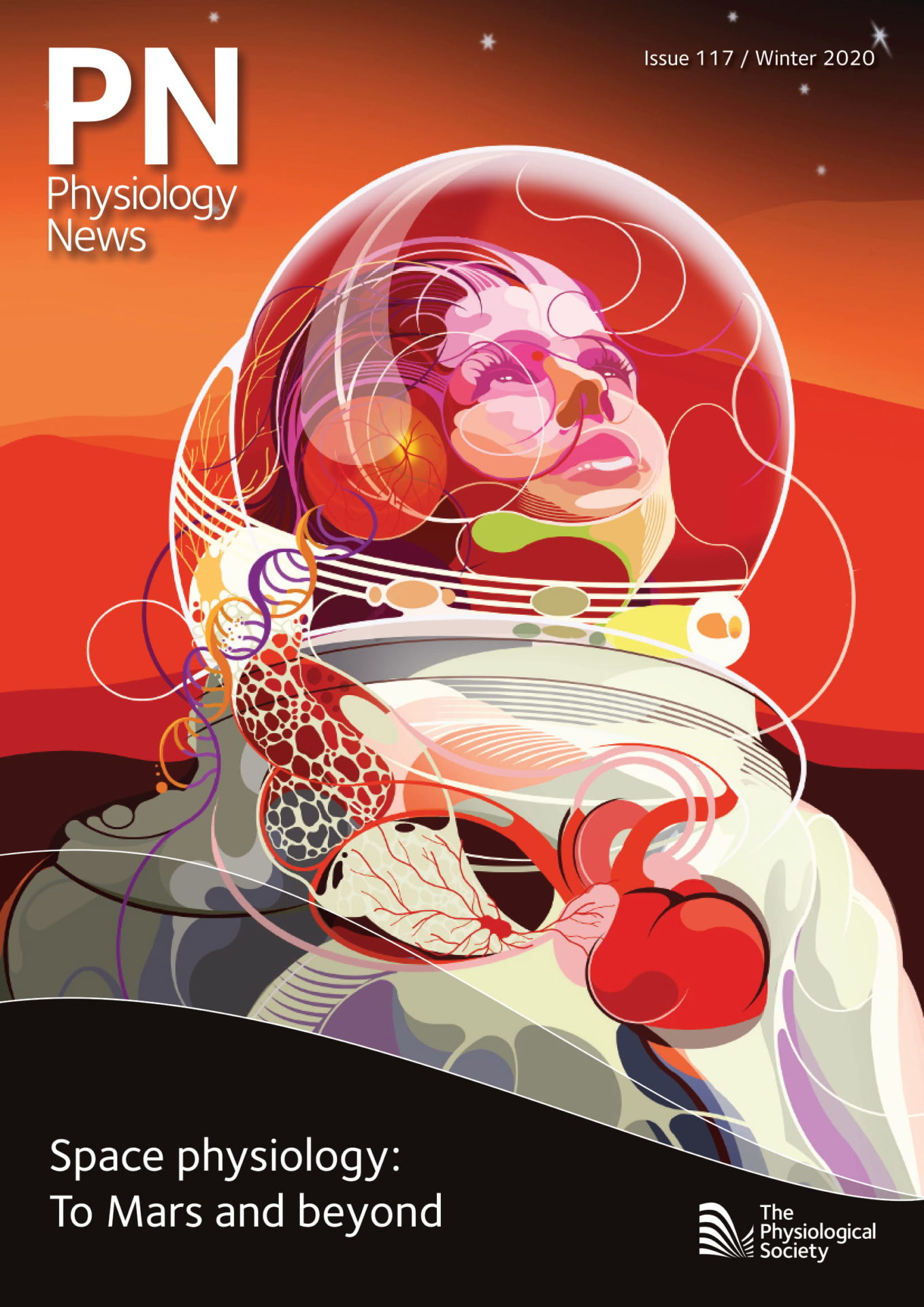
Physiology News Magazine
Europhysiology 2020: Bringing together the physiology community
Events
Europhysiology 2020: Bringing together the physiology community
Events
Susan Deuchars
Chair of Conferences Committe, The Physiological Society
& University of Leeds, UK
https://doi.org/10.36866/pn.117.21
11 – 13 September 2020, Estril Congress Center,
Berlin, Germany
We are delighted to be looking forward to Europhysiology 2020, which will take place in Berlin, home to world-renowned universities and a fascinating city for culture and history. Europhysiology 2020 is a continuation of a series that started with Europhysiology 2018 in London with the third conference taking place in Copenhagen in 2022. The overwhelming success of our first Europhysiology conference in London, was due in part to superb plenary and keynote lectures, thought-provoking symposia and a plethora of oral communications that highlighted the importance of interactions between the physiological societies in Europe. Our packed programme in Berlin promises to keep this momentum going and we look forward to maintaining that fantastic buzz and enthusiasm in discussing new advances in physiology research.
Based on Europhysiology 2018, we expect more than 1400 participants involved in all aspects of physiology. This is your chance to broaden your network of physiology colleagues and hear the latest research across the full breadth of research topics. There are over 100 oral communication slots and three poster sessions that allow physiologists of all career stages to showcase their research. These, together with the workshops and the informal events being planned, both across our Themes and across the societies, will encourage mingling, lively discussions and fostering of collaborative ventures similar to those that have already proved fruitful from Europhysiology 2018.
The four plenary lectures, one chosen by each participating society, provide thought-provoking overviews of physiology, delivered by some of the top leaders in their fields. The Physiological Society is delighted to host it’s Annual Review Prize lecture in Berlin, given by David Attwell, University College London whose extensive work on neurovascular interactions and elucidating the roles of pericytes, which he describes as “power switches in the brain” is truly inspirational. We look forward to hearing about his most recent work looking at pericytes in human brain tissue. The Michael de Burgh Daly Prize Lecture will be delivered by Fiona Gribble from the University of Cambridge. Her research determines the actions of gut hormones
on target tissues. In understanding how gut hormones are released, they aim to target ways of modulating this release, which may lead to the development of new drugs or diets that treat diabetes and obesity. The third of our prize lectures announced so far is the Bayliss-Starling Prize Lecture given by Maria Fitzgerald, University College London, who is internationally recognised for pioneering work in the basic developmental neurobiology of pain, central processes underlying hyperalgesia and allodynia, and the understanding of pain in infants and children. We also have plenary lectures by Heidi McBride (McGill University, Montreal) on post-translational modification of mitochondrial function and Volker Vallon (University of California, San Diego) on the role of the kidney in the regulation of blood pressure, renal clearance of exogenous and endogenous compounds, and the underlying pathophysiology of the early diabetic kidney. Amongst the keynote lectures, Holger Gerhardt from the Leuven Center for Cancer Biology, Belgium, has a focus on tumour angiogenesis with an aim to consider the refinement of anti-angiogenesis and vessel normalisation therapy. These lectures often provide us with potential new directions or techniques to consider in our own research, regardless of the differences in the organ or system studied. For a full list of all plenary and keynote lectures, visit europhysiology2020.org
During the main conference, we have symposia on topics ranging from “The athlete’s heart”, microbiota, oxygen sensing in health and disease, and the cardiac sodium channel, through to “inhibitory mechanisms in cortical information flow”. There are also four focused pre-symposia on cardiac physiology, skeletal muscle, renal physiology and vascular physiology with programmes being finalised as we speak, so do check our website! Two other satellite symposia, sponsored by The Physiological Society have more complete programmes. The first on “Ionotropic glutamate receptors: structure, function and dysfunction” will consider proteins that regulate properties of this family of ligand-gated ion channels and de novo mutations in ionotropic glutamate receptor subunits underlying neurological disorders. The second, entitled “Can exercise prevent the age-related decline in adaptive homeostasis? Evidence across organisms and tissues” will bring together leaders in the fields of exercise physiology and ageing research to discuss the current understanding and research gaps in this research. Importantly for our early career physiologists, there will be a dedicated symposium for them, with a programme developed across the societies and relevant to all. We have ensured that there is no clash between subject-specific symposia and this early career symposium so that you can choose to attend both, if you wish. These pre-symposia will take place at the same venue. Registration for all of these is free but you do have to be registered for the main conference to attend and there will be limited spaces, so be sure to register early.
The conference will take place at the Estrel Congress Centre in Berlin from 11 to 13 September 2020, with pre-symposia on 10 September. We look forward to seeing you all in Berlin; we are anticipating a great conference celebrating physiology at its best!
Key dates
15 January 2020:
Online registration opens
5 March 2020:
Abstract submission opens
25 May 2020:
Abstract submission closes
15 June 2020:
Early registration closes
15 July 2020:
Late-breaking abstract submission closes (poster only)
1 September 2020:
Late registration closes
10 September 2020:
Pre-Meeting Symposia
11 – 13 September 2020: Meeting dates
